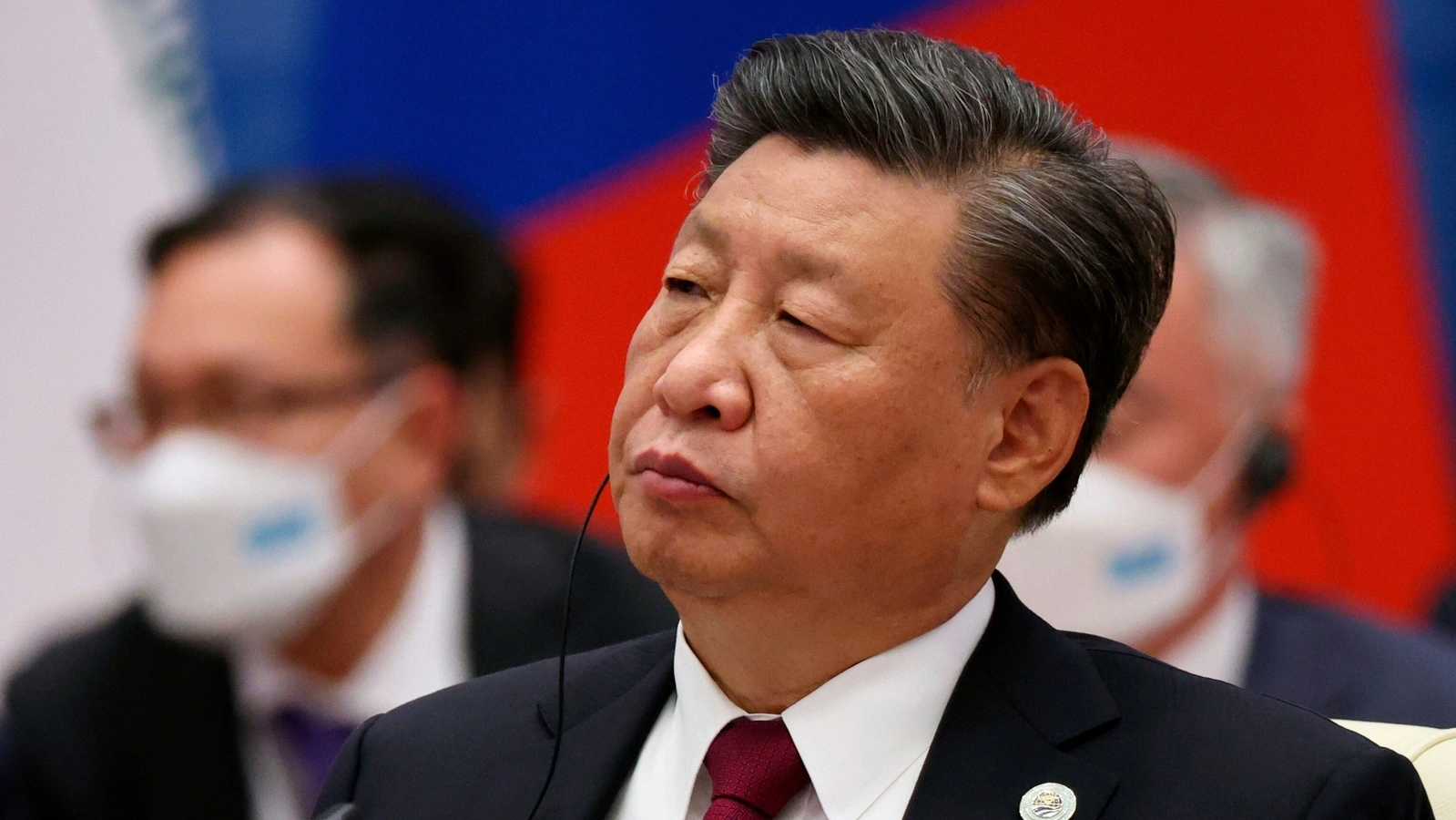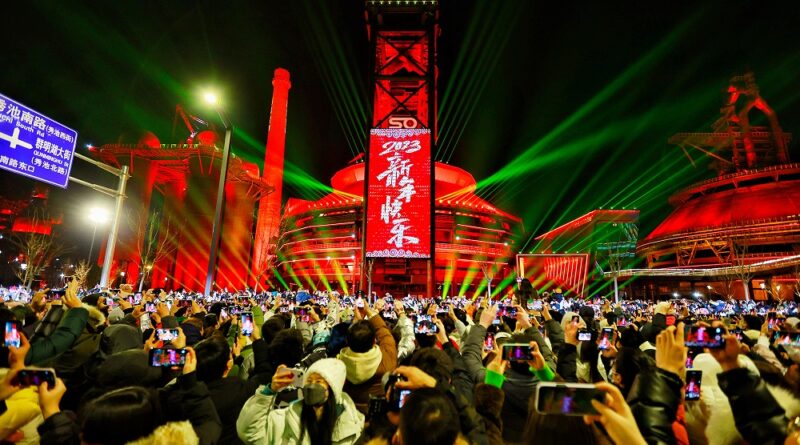CHALLENGING START FOR CHINA
Challenging start for China
As the Chinese celebrate Lunar New Year with mass cross-country migration, Yuwen Wu speculates on whether there will be a surge in Covid cases, and the government’s potential response
After three years of lockdowns and various restrictions, Chinese people were finally able to get together to celebrate the Lunar New Year on 22 January.
They travelled in huge numbers: according to official estimates, some 2.1 billion trips will have been made from 7 January to 15 February. However, London-based research institute Capital Economics observes that roughly only half as many trips were made during this New Year break, compared with before the pandemic. But it notes that within cities, traffic and public transport usage is back to normal, suggesting that people are making a return to shopping and going to restaurants, while remaining a bit worried about taking Covid back to elderly relatives.
Mr Wu Zunyou, chief epidemiologist of the Chinese Centre for Disease Control and Prevention, stated that despite the mass travelling, it is highly unlikely that there will be another wave of Covid infections in the next two to three months, as 80 per cent of the population has been infected in the current wave.
That is more than one billion people who have already caught Covid in recent months. While most of them will pull through, those with underlying health conditions, especially old people who haven’t been vaccinated, might not be so lucky.
China reported nearly 13,000 covid deaths for the week of 12 to 19 January
On 22 January, China reported nearly 13,000 covid deaths for the week of 12 to 19 January, and this is in addition to the nearly 60,000 deaths from 8 December to 12 January. It marks a huge increase from the 5,000-plus death total since the pandemic started and before the current wave. But there is fear that the latest figures donot reflect the true picture, as they only include those who died in medical facilities. Many people died at home, and in the vast rural areas where medical resources are more basic, an unknown number of deaths might not have entered thestatistics.
A BBC journalist recently visited some villages in Shanxi province and observed funerals and many freshly dug graves. In one village of a few thousand residents, 40 have died recently. The crematorium and coffin makers were busy, sometimes with coffins sold out.A village doctor told the reporterthat 80 per cent of the villagers have got Covid.

Bittersweet New Year
For many in China, this was a bittersweet Lunar New Year. While migrant workers can finally travel back to their villages, and families and friends everywhere can finally feasttogether and catchup face to face, some grandparents have passed away, some dead relatives did not get a decent farewell, and many might not have a job to return to.
My extended family in Beijing – 12 of whom had caught Covid but slowly recovered –had lunch together on New Year’s day in a restaurant, the first such outing in three years. From the photos, I don’t see the usual hearty smiles, the wine glasses clinking and animated conversations. Instead, I see the struggles they have been through, the take-one-day-at-a-time resignation, and the glad-we-are-here stoicism.
President Xi Jinping did express concern about the impact of new year travelling on the Covid situation,especially in rural areas, but it was too late to stop it, due to the lifting of the Covid restrictions in December 2022.
Having persevered with its zero Covid policy for three years, the government abandoned it after mass protests across the country, as people were fed up with the inflexible one-size-fits-all measures,blamed for numerous delayed trips to hospitals, accidents and deaths, and severe constraints on people’s freedom.

The Chinese leadership will be tested on many fronts in the new year
A disastrous U-turn?
Within days from 7 December, when new regulations were published, mass testing was abandoned, alongside compulsory quarantine for people who tested positive and the much-hated health code which determined if a person could go anywhere or not.
What followed was an avalanche of Covid cases throughout the country. There was no clear guidance as to what to do if one got Covid, so people rushed to pharmacies for basic cold medicines, while hospitals were overwhelmed with anxious patients, and doctors and nurses were asked to work despite testing positive themselves. A large number of deaths occurred within days of opening up, among them many distinguished scientists or artists. Scenes of long queues of hearses forming outside crematoria were shared widely on social media.
‘People wanted freedom, but nobody told them there was a tiger waiting at the gate,’ said a friend, describing the chaos.
Many factors are attributable to this U-turn disaster, including the lack of an exit strategy, failure to prioritise vaccination for the elderly, and inadequate preparation.
It is interesting to compare the approach in China to that of another Asian country, Singapore, where officials outlined a clear plan involving vaccination, testing and treatment to return society to normality. These proposals were made public in the summer of 2021, while the pandemic was still raging.
Professor Alfred Muluan Wu from the National University of Singapore told the BBC that, by contrast, officials from the Chinese government had not explained their plans to the public by late 2022, suggesting they were not fully prepared.
His view is that, like Singapore, China should have allowed the import of more effective foreign vaccines, such as the formula produced by Pfizer/BioNTech. Instead, there was an over-reliance on domestic vaccines – a ‘wasted opportunity,’ according to Professor Wu.
Broken trust
For ordinary people who lost loved ones in the aftermath of the policy shift, or who witnessed the helplessness of the situation, they feel bewildered, bitter and angry and they demand answers. Some believe public trust in the government is completely broken; others question the credibility of health officials whopaint a bleak picture of Omicron infection one day,to justify zero Covid restrictions,butalmost the next day, once the policy was reversed,dismiss Omicron infection as no more than a flu.
Where does this leave President Xi Jinping,who was adamant that China could deal with the pandemic better than western countries?
‘With Zero Covid, China proved it’s good at control. Governance is harder,’was the verdict of a New York Times’ headline on 26 December.
‘The greatest political cost is the erosion of trust in him [Xi] and the party,’ Professor Lynnett Ong fromthe University of Toronto told the Washington Post.‘China does not need to use coercive violence against its citizens because people generally believe in the party and its leaders. But if trust is gone and legitimacy lost, everyday policy implementation will become more challenging without the use of force,’ she argues.
Against such a backdrop, the Chinese leadership will be tested on many fronts in the new year.
They need to manage the pandemic so there will not be another huge wave of infections and deaths. In addition, the Chinese economy needs a serious push: the 3 per cent growth in 2022, the slowest since 1976 (except for 2020), is simply not good enough. They also need to handle foreign relations more masterfully, in order to create a less hostile environment so they can focus on domestic issues.
After the chaotic end to 2022, the world will be watching/ And so will the Chinese people.
Yuwen Wu is a London-based analyst and former senior journalist with the BBC

